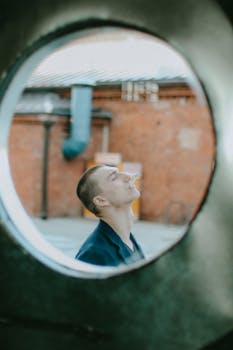Feeling anxious at night can be an unsettling experience. Many people wonder, “Why do I feel anxious at night?” This is a common concern, as nighttime is a period when our minds, free from daytime distractions, may focus on worries and stressors. Understanding why anxiety at bedtime occurs can help in finding ways to manage it effectively.
Why Do I Feel Anxious at Night?
Anxiety at night can be triggered by various factors. It often happens because the mind is not distracted by work or daily activities, making it easier for anxious thoughts to surface. Stress accumulated throughout the day and the lack of structured activities before bed can also exacerbate these feelings.
Causes of Nighttime Anxiety
Understanding the root causes of anxiety when trying to sleep can help in managing it better. Here are some common reasons:
- Stress and Overthinking: Daily stressors can accumulate, and unresolved tasks or worries can flood your mind at night.
- Sleep Disorders: Issues such as insomnia or sleep apnea can be linked to anxiety before bed.
- Hormonal Fluctuations: Changes in hormone levels during the night can trigger anxiety symptoms.
- Lifestyle Factors: Consuming caffeine or alcohol in the evening can increase nighttime anxiety. Irregular sleep schedules also contribute.
How to Calm Anxiety at Night
Managing anxiety keeping you awake involves adopting calming practices and routines. Here are some strategies to consider:
- Establish a Bedtime Routine: Consistent routines help signal your body that it’s time to wind down. Include relaxing activities like reading or taking a warm bath.
- Mindfulness and Relaxation Techniques: Practicing deep breathing, progressive muscle relaxation, or guided imagery can reduce anxiety symptoms. For more on calming physical symptoms, read our guide on how to stop shaking from anxiety.
- Limit Screen Time: Blue light from screens can interfere with sleep patterns, so it’s wise to power down devices an hour before sleep.
When Anxiety is Worse at Night
For some, anxiety gets worse at night, which can be challenging to manage. This intensification can be due to increased silence and solitude, creating an environment where worries appear more pronounced. Additionally, exhaustion and fatigue can lower your ability to handle stress.
Why Am I So Paranoid at Night?
Feeling paranoid or overly anxious at night might be due to a hyperactive mind that magnifies fears and concerns in the absence of external distractions. If these feelings are persistent, they might be a signal to reflect on mental health with a professionals’ help.
How to Get Rid of Bad Anxiety at Night
Addressing bad anxiety at night involves both long-term and short-term strategies. Engaging in regular exercise, prioritizing sleep hygiene, and, if needed, seeking therapy can significantly help. Additionally, relaxation exercises close to bedtime can lessen anxiety symptoms.
Why Does My Anxiety Get Worse at Night?
The question, “Why does my anxiety get worse at night?” is common among many experiencing anxiety disturbances during the nighttime. Some reasons include low blood sugar levels, fewer distractions, and elevated cortisol levels, which are the body’s stress hormones. Modifying evening habits and examining daytime anxiety triggers can provide relief.
Seeking Professional Guidance
If you find yourself too anxious to sleep regularly, consulting with a healthcare provider is advisable. They can offer personalized recommendations and explore potential treatment options. Addressing anxiety with professional input can significantly improve quality of life.
For further information on anxiety and sleep, you might find visiting this resource about sleep and anxiety informative.
Takeaways
- Nighttime can cause anxiety due to a lack of distractions from daily activities.
- Stress, hormonal changes, and lifestyle factors contribute to nighttime anxiety.
- Establish bedtime routines and relaxation techniques to manage anxiety.
- Consulting professionals can be beneficial for persistent anxiety issues.
FAQ
What causes anxiety at night?
Anxiety at night can be caused by stress, hormonal fluctuations, or lifestyle factors such as caffeine intake and lack of sleep hygiene.
Can anxiety make it hard to sleep?
Yes, anxiety can keep you awake by making it difficult to relax and quiet your mind, often leading to insomnia.
Why do I feel more anxious at night compared to the day?
At night, there are fewer distractions, allowing worries and stressors to become more prominent, often intensifying anxiety.
How can I relieve nighttime anxiety effectively?
Establishing a routine, engaging in relaxation techniques, and limiting screen time can help alleviate nighttime anxiety.
Should I seek professional help for nighttime anxiety?
If your anxiety is persistent or worsening, it’s advisable to seek guidance from a healthcare provider. They can offer strategies tailored to your needs.






